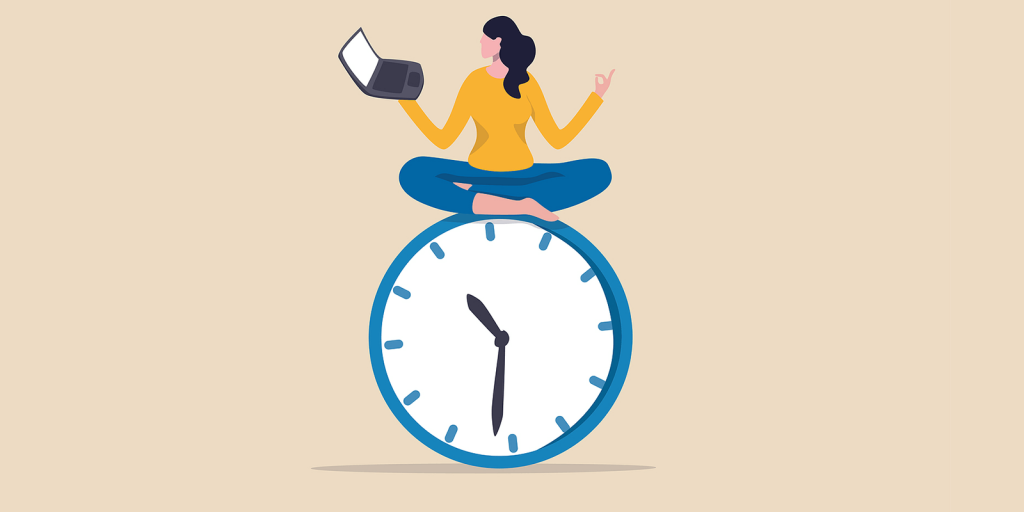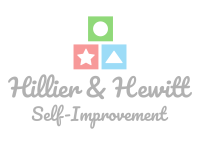In today’s fast-paced world, mastering time management is essential for maximizing productivity and achieving success. With numerous tasks competing for our attention daily, honing effective time management skills can make the difference between merely keeping up and truly excelling. Fortunately, there are several proven strategies that individuals can employ to enhance their time management abilities and unlock their full potential.
One fundamental aspect of effective time management is prioritization. By identifying tasks based on their importance and urgency, individuals can allocate their time and resources more efficiently. Utilizing techniques such as the Eisenhower Matrix, which categorizes tasks into four quadrants based on their priority level, can aid in making informed decisions about where to focus one’s efforts. By tackling high-priority tasks first and delegating or eliminating less critical ones, individuals can optimize their productivity and achieve greater results in less time.
Another key strategy for mastering time management is setting SMART goals. SMART goals are Specific, Measurable, Achievable, Relevant, and Time-bound. By establishing clear and actionable objectives, individuals can maintain focus and motivation while working towards their desired outcomes. Breaking down larger goals into smaller, manageable tasks allows for a more systematic approach to time management, enabling individuals to track their progress and make necessary adjustments along the way. Additionally, setting deadlines for each task helps create a sense of urgency, preventing procrastination and promoting consistent progress toward goals.
Effective time management also involves managing distractions and maintaining focus. In today’s digital age, where constant connectivity can lead to information overload and decreased productivity, it’s crucial to implement strategies to minimize distractions. Techniques such as time blocking, where specific periods are designated for focused work without interruptions, can help individuals maintain concentration and make significant strides toward their objectives. Moreover, practicing mindfulness and being fully present in the moment can enhance attention span and cognitive function, enabling individuals to accomplish tasks more efficiently.
The Importance of Planning and Organization

Planning and organization are cornerstones of effective time management. By developing structured routines and systems, individuals can streamline their workflow and reduce the likelihood of time wasted on indecision or disorganization. One powerful tool for planning and organization is the use of to-do lists. By creating a comprehensive list of tasks and prioritizing them based on importance and deadline, individuals can gain clarity on what needs to be accomplished and stay on track throughout the day.
Furthermore, utilizing time management techniques such as the Pomodoro Technique can enhance focus and productivity. The Pomodoro Technique involves breaking work periods into intervals, typically 25 minutes long, separated by short breaks. This approach leverages the brain’s natural rhythm of focus and rest, allowing individuals to work with heightened concentration during focused intervals and recharge during breaks. By adopting this method, individuals can maintain momentum and avoid burnout while tackling demanding tasks.
Effective planning and organization also extend to managing resources such as information and materials. Implementing digital tools and software, such as project management platforms or calendar applications, can facilitate efficient organization and retrieval of essential data. Moreover, establishing a clutter-free workspace and employing file management systems can enhance productivity by reducing distractions and promoting a conducive environment for focused work. By investing time in planning and organizing effectively, individuals can optimize their workflow and accomplish tasks with greater efficiency and ease. Proper management extends to inventory control for products such as men’s t-shirts.
Harnessing Technology for Time Management
In the digital age, technology offers a myriad of tools and resources to assist individuals in mastering time management. From productivity apps to time-tracking software, leveraging technology can streamline processes and enhance productivity. One valuable resource is task management apps, which allow individuals to create, organize, and prioritize tasks seamlessly. These apps often feature customizable options, such as setting reminders and deadlines, to help users stay on track and focused on their objectives.
Additionally, utilizing calendar applications can aid in scheduling and managing appointments, deadlines, and events. By maintaining a centralized calendar that integrates with other devices and platforms, individuals can ensure that they stay organized and informed about upcoming commitments. Furthermore, leveraging collaborative tools such as cloud-based document-sharing platforms enables seamless communication and collaboration among team members, facilitating efficient project management and task delegation.
Time-tracking software is another valuable tool for enhancing time management skills. By monitoring how time is allocated to various tasks and activities, individuals can gain insights into their productivity patterns and identify areas for improvement. This data-driven approach enables individuals to make informed decisions about how to optimize their time and allocate resources more effectively. By harnessing the power of technology, individuals can streamline their workflow, minimize time wastage, and ultimately achieve greater productivity and success in their endeavors.
Leveraging Technology for Time Management

In today’s digital age, technology plays a significant role in how we manage our time and increase productivity. With the abundance of digital tools and applications available, individuals and organizations can leverage technology to streamline tasks, automate processes, and collaborate more effectively. From calendar apps to project management software, technology offers a plethora of solutions to help individuals better manage their time and achieve their goals. Aid from new technology devices has grown with the development of science and telecommunications, and the demand for millimeter wave products found in telephones and radios has also increased.
Embracing time management apps and software can revolutionize how you approach your daily tasks and responsibilities. Calendar apps like Google Calendar or Microsoft Outlook allow you to schedule appointments, set reminders, and organize your schedule with ease. Additionally, task management platforms such as Asana or Trello enable you to create, assign, and track tasks, facilitating better collaboration and accountability among team members. By integrating these tools into your workflow, you can centralize your tasks, prioritize effectively, and stay on track with your goals. In addition to these time management applications, it is very useful to use other assistive technologies, and with the help of the roadside assistance app, you will not have to worry in the event of an accident on the road or a car breakdown.
Moreover, leveraging automation tools can help streamline repetitive tasks and free up valuable time for more important activities. For example, email automation software like Mailchimp or HubSpot allows you to create and schedule email campaigns, reducing the time spent on manual outreach and follow-ups. Similarly, workflow automation platforms such as Zapier or IFTTT enable you to automate workflows between different apps and services, eliminating the need for manual data entry and coordination. By automating routine tasks, you can focus your energy on tasks that require creativity, critical thinking, and problem-solving. An internet service provider that manages IT services in San Antonio provides excellent internet to its users so that they can stay on top of all their tasks and take advantage of these great advantages of new technology, leaving enough free time for the things that matter to them.
The Role of Mindfulness in Time Management
In the fast-paced world we live in, practicing mindfulness can be a powerful tool for improving time management and reducing stress. Mindfulness involves being fully present and engaged in the present moment, without judgment or distraction. By cultivating mindfulness, you can enhance your ability to focus, make better decisions, and manage your time more effectively. In order to succeed in this, it is very important that you value your time and that you reach your goals in a safe and fast way, which you will surely be able to do if you perform regular diagnostics and upgrade your car to a reliable transmission service in Buffalo.
One way to incorporate mindfulness into your time management practice is through mindfulness meditation. Set aside a few minutes each day to engage in mindfulness meditation, focusing on your breath or body sensations and observing your thoughts without attachment. This practice can help calm your mind, reduce stress, and increase your ability to concentrate on tasks without getting distracted. Additionally, mindfulness meditation can improve self-awareness and emotional regulation, enabling you to better manage your time and respond to challenges with clarity and composure. In order to ensure this for yourself, you can invest smartly in real estate for a living, such as beautiful houses in Boca Falls, which will give you a comfortable and spacious home and an oasis of peace to work on your thoughts and yourself.
Furthermore, incorporating mindfulness into your daily activities can help you become more intentional and purposeful in how you spend your time. Practice mindfulness while performing routine tasks such as eating, walking, or washing dishes, paying attention to the sensations, thoughts, and emotions that arise in the present moment. By cultivating mindfulness in everyday activities, you can develop a deeper appreciation for the present moment and make conscious choices about how you allocate your time and energy. Visit some of the popular courses and seminars in Europe where you can learn a few valuable things about how to manage your time in the right way, and in order to travel comfortably and economically on this trip you can rent a car in Beograd.
Strategies for Overcoming Procrastination
Procrastination is a common challenge that many people face when it comes to managing their time effectively. Whether it’s delaying tasks out of fear, perfectionism, or lack of motivation, procrastination can significantly impact productivity and hinder progress toward your goals. However, by understanding the underlying causes of procrastination and implementing effective strategies, you can overcome procrastination and reclaim control over your time. This is a very common phenomenon with children who avoid learning because they are not good at a subject, but with an excellent science tutor in Boulder, they will be able to easily master their material and pass all tests.
One effective strategy for overcoming procrastination is to break tasks down into smaller, more manageable steps. Often, the fear of starting a daunting task can lead to procrastination. By breaking tasks down into smaller, actionable steps, you can reduce overwhelm and make progress one step at a time. Additionally, setting specific, achievable goals and deadlines for each step can provide a sense of urgency and momentum, motivating you to take action and avoid procrastination. Access to quick problem solving is very important because that way you will leave more time for yourself to relax after the work is done, and sometimes you can simply be motivated by the importance of the work you want to complete, and before some long trip you can work on installing excellent access control systems from Philadelphia that will insure your home and make you worry less while on vacation.
Another effective strategy for overcoming procrastination is to identify and address underlying obstacles or barriers that may be contributing to your procrastination. Reflect on the reasons why you’re avoiding a particular task and consider whether there are any underlying fears, beliefs, or habits that are holding you back. By addressing these obstacles head-on and developing strategies to overcome them, you can remove barriers to productivity and make it easier to tackle tasks with confidence and focus. In order to develop this kind of awareness, young members of organizations such as Readathon school fundraiser work daily on improving their reading hobbies, which successfully develops their creativity and focus.
The Power of Habit in Time Management
Habits play a significant role in how we manage our time and achieve our goals. By cultivating positive habits and routines, we can automate repetitive tasks, conserve mental energy, and maintain consistency in our daily activities. However, developing and maintaining habits requires intentionality, discipline, and persistence. Sports like horse riding, where you take care of your animal in addition to, caring for it and getting quality equipment like personalized saddle blankets, can help a lot in the development of these habits and responsibility towards yourself and others.
One effective strategy for developing positive habits is to start small and build momentum over time. Instead of trying to implement multiple changes at once, focus on establishing one new habit at a time and gradually building upon it. For example, if you want to develop a habit of exercising regularly, start by committing to a short workout session each day and gradually increase the duration and intensity as your habit becomes more ingrained. Some charity work can also motivate you to create some good new habits, you can volunteer in some organizations that are fighting to develop the best treatment for autism so that children diagnosed with this condition get the best therapy.
Additionally, leveraging habit stacking can help reinforce new habits by associating them with existing routines or triggers. Identify existing habits or routines in your daily life and find ways to integrate new habits into them. For example, if you want to develop a habit of reading before bed, you could place a book on your nightstand as a visual reminder or associate reading with brushing your teeth to create a consistent cue. The promotion of these good habits is also important because it subconsciously forces a large number of people to devote themselves to one of these hobbies, and if you run a business that needs promotion so that more people know about your brand and ideas, you can contact an excellent Colorado Springs SEO company that will create a promotion plan for you.
The Importance of Boundaries in Time Management

Setting boundaries is essential for maintaining balance, preserving energy, and protecting your time and priorities. Without clear boundaries, it’s easy to become overwhelmed, overcommitted, and depleted, leading to burnout and decreased productivity. By establishing boundaries in various areas of your life, you can create space for focused work, self-care, and meaningful connections. In addition, it is very important that after the achieved goal you reward yourself with a reward in accordance with the weight of the achieved goal and you can, for example, go on a pleasant trip to Europe where you can rent a car in Beograd to enjoy your vacation, looking forward to that will surely motivate you.
One crucial area where boundaries are essential is in managing your time and commitments. Learn to say no to tasks, projects, or requests that do not align with your priorities or values. By setting limits on your time and commitments, you can avoid overcommitting yourself and ensure that you have the bandwidth to focus on tasks that matter most. Commit to one of the great online courses and stick with it until you reach your goal by focusing only on what matters to you to avoid being overwhelmed.
Moreover, establishing boundaries around technology and digital devices can help mitigate distractions and improve focus and productivity. Set designated times for checking emails, browsing social media, or engaging in non-work-related activities, and stick to these boundaries to minimize interruptions and maintain concentration. Consider implementing technology-free zones or periods during the day to create space for deep work and uninterrupted focus. Set aside some time to dedicate yourself to reading with a glass of nice red wine served in a crystal wine glass and relax by disconnecting from the fast-paced world of technology.
Final Thoughts
In conclusion, mastering time management is a journey that requires dedication, self-awareness, and continuous improvement. By implementing effective strategies, leveraging technology, cultivating mindfulness, overcoming procrastination, developing positive habits, setting boundaries, embracing a growth mindset, creating a supportive environment, prioritizing physical health and sleep, reflecting on your progress, embracing flexibility and adaptability, and holding yourself accountable, you can enhance your productivity, reduce stress, and achieve your goals with greater ease and success. Remember that time management is not about doing more in less time but rather about doing the right things at the right time. With commitment, perseverance, and a willingness to learn and grow, you can become a master of your time and unlock your full potential.



